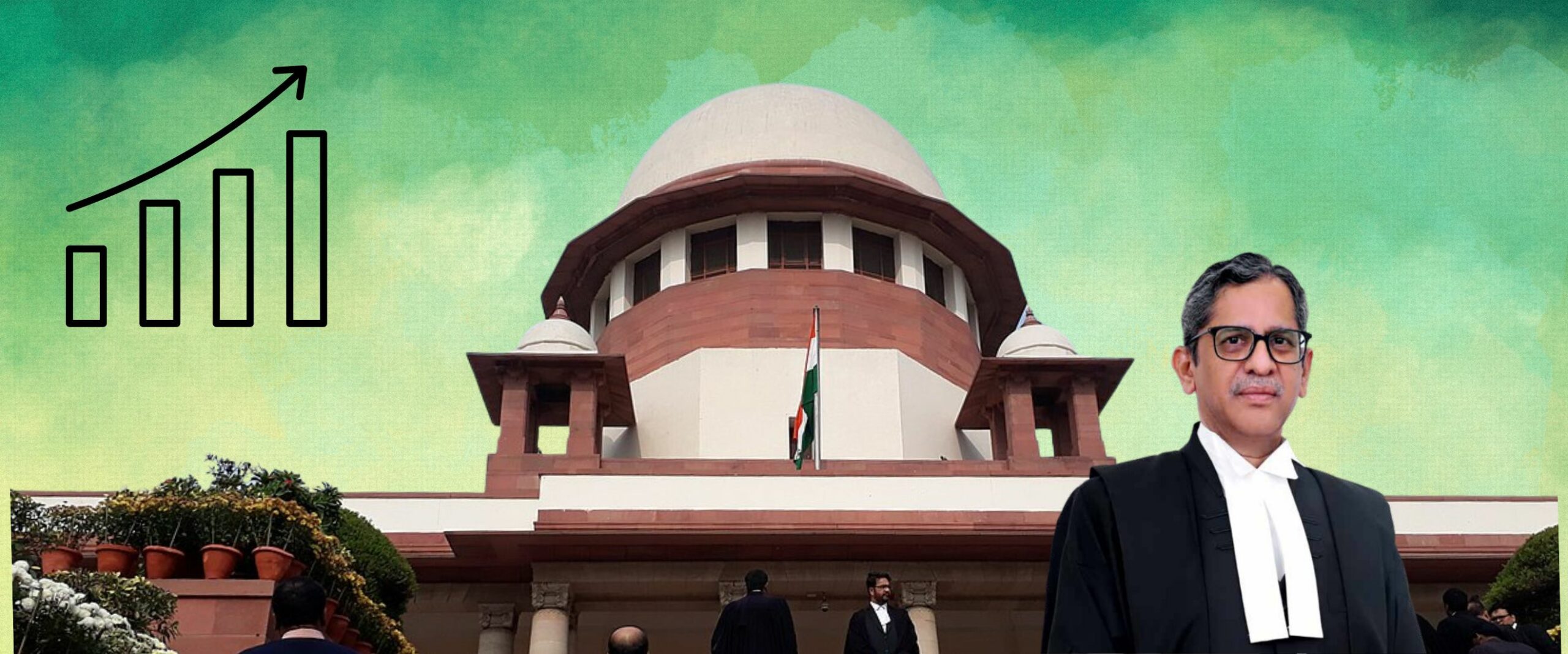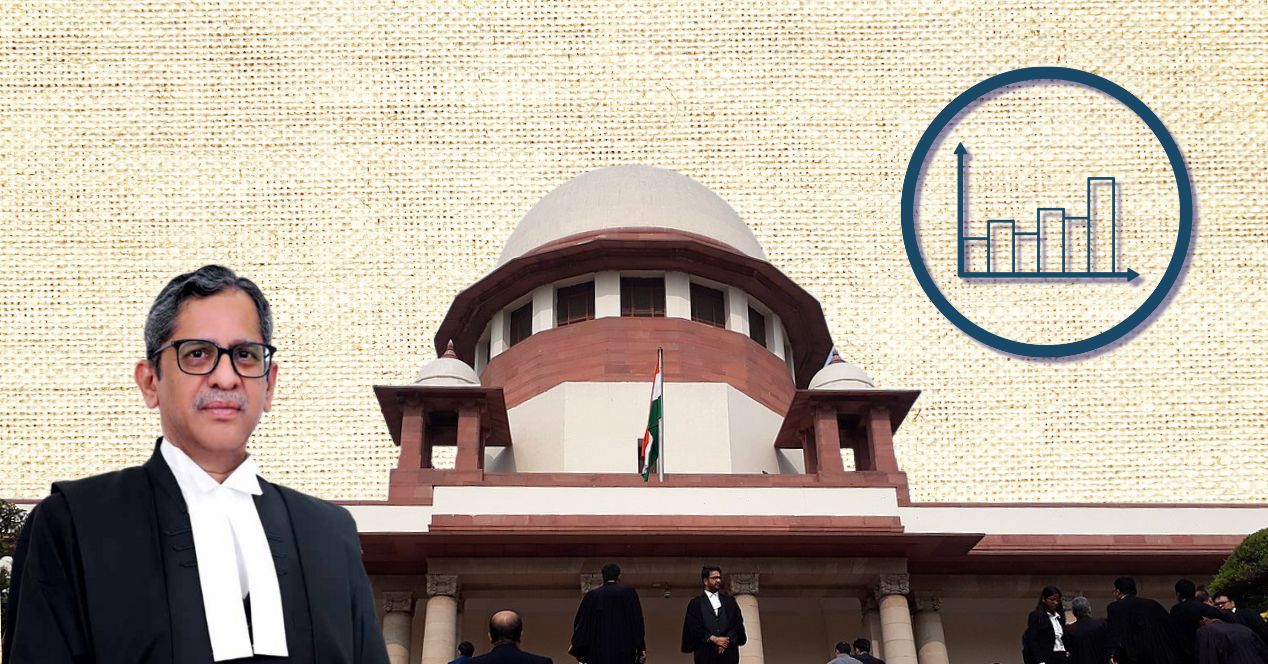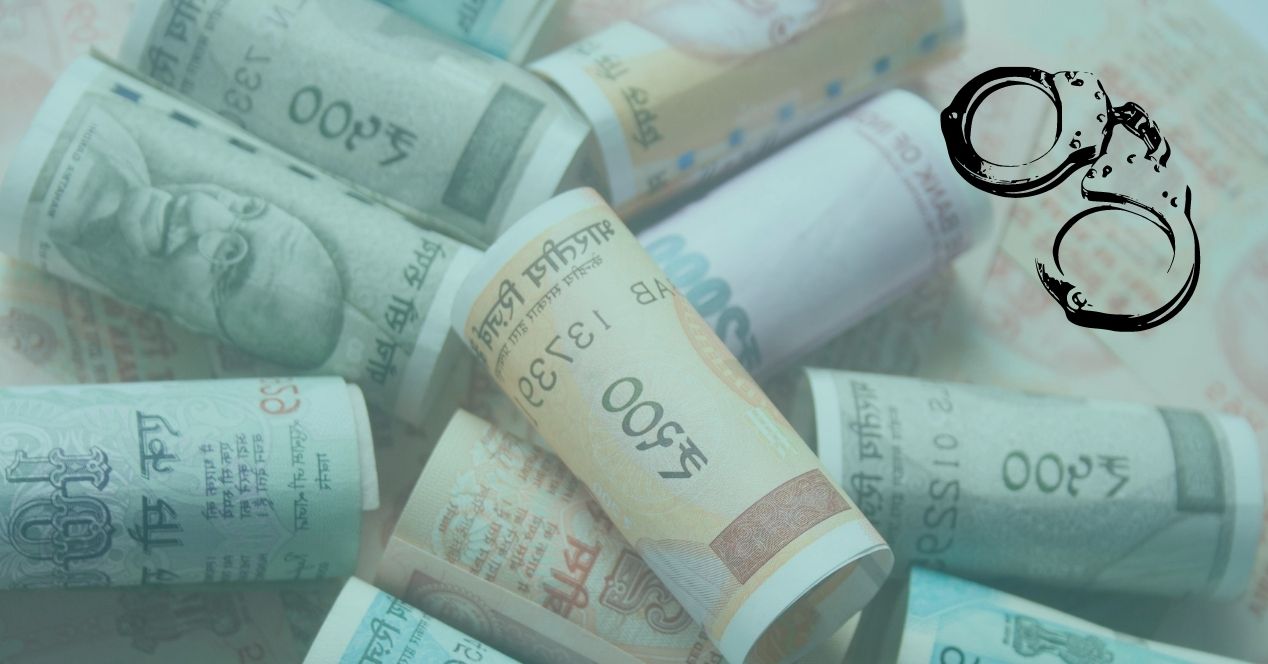Court Data
How Active was the Collegium Under CJI Ramana?
The CJI Ramana-led Collegium made more recommendations for HC appointments than his three predecessors.

On August 25th, 2022, CJI N.V. Ramana touted the accomplishments of the Supreme Court Collegium in appointing High Court Judges during a farewell event in his honour. He said ‘Thanks to the support given by my brother and sister Judges in the Supreme Court and Collegium, we successfully appointed almost 224 judges in High Courts’.
CJI Ramana may not have written as many Judgments as his contemporaries or arrived at final decisions in many of the most important cases he heard during his career. However, he has been widely praised for successfully leading the Collegium in recommending Judges for appointment and filling vacancies at the High Courts and the Supreme Court.
For HC appointments, the Supreme Court Collegium comprises the CJI and the next two seniormost Judges at the SC. The Collegium sends recommendations for HC appointments to the Union government for the President’s approval. However, if a recommendation is rejected and the Collegium ‘reiterates’ the same recommendation, the President is bound to accept the recommendation.
Here, we compare the number of judges recommended for appointment under each Chief Justice since 2017. Data is available only after 2017 since the Collegium began publishing their resolutions on October 3rd, 2017, under former CJI Dipak Misra*.
Recommendations for High Court Appointments
Figure 1 shows the number of Judges recommended for HC appointments by the Collegium under former Chief Justices N.V. Ramana, S.A. Bobde, Ranjan Gogoi, and Dipak Misra. It is immediately clear that the Collegium under CJI Ramana recommended the highest number of Judges for HC appointments. During the approximately 1.3 years he spent as CJI, the Collegium recommended 363 names. CJI Bobde, in comparison, served as CJI for over a month longer than CJI Ramana. However, during his tenure, the Collegium recommended 243 Judges for High Court appointments.
Further, the Collegium under CJI Ramana reiterated 11 appointment recommendations—the same names were recommended for appointment a second time after the Union government did not accept the first recommendation. This is second only to the CJI Gogoi-led Collegium which reiterated 16 appointment recommendations.
When the Collegium reiterates a recommendation, the Union is bound to accept it, following the Third Judges Case (1998). Reiterations are occasionally a source of tension between the Collegium and the Union, with the latter often keeping the reiterated recommendations pending despite being bound to accept them. The Collegium under CJI’s Misra and Bobde reiterated 7 and 2 appointment recommendations respectively, perhaps showing that they were less inclined to a standoff over appointments.
Recommendations for Supreme Court Elevations
Figure 2 shows the number of Supreme Court elevation recommendations made by the Collegium under the same four Chief Justices. The CJI Gogoi-led Collegium made 16 recommendations for SC elevations, including two reiterations for Justices Aniruddha Bose and A.S. Bopanna. The CJI Ramana-led Collegium comes second with 11 recommendations.
Perhaps most notably, the Collegium under CJI Bobde was deadlocked for SC elevations, with 0 recommendations being made throughout his tenure. Justice R.F. Nariman, who was a member of the Collegium during CJI Bobde’s tenure, reportedly refused to consider elevating anyone to the SC until Justices Akil Kureshi and Abhay Oka were recommended for elevation, as they were the senior-most among High Court Judges at the time. In May 2019 the Union rejected Justice Kureshi’s appointment as Chief Justice of the Madhya Pradesh HC. In September 2019, the Collegium recommended his appointment as Chief Justice of the Tripura HC instead, a smaller jurisdiction with fewer cases.
Justice Nariman retired in August 2021, 3 months into CJI Ramana’s tenure. Justice L. Nageswara Rao replaced him on the Collegium. Following this CJI Ramana’s Collegium swung swiftly into action, making its first set of 9 recommendations and subsequent appointments on August 31st, 2021. While Justice Oka was finally elevated in this set of recommendations, Justice Kureshi's name was notably absent.
Delays From the Union are a Common Obstacle to Appointments and Elevations
The CJI Ramana-led Collegium appears to have done its part to ensure courts across the country have enough sitting Judges to hear cases in a timely manner. However, the Union government’s approval, a necessary criterion for appointments, has been a source of contention for CJI Ramana.
CJI Ramana, the Union, and State governments appeared to come to terms with each other in April 2022 to abide by fixed timelines for appointments. However, while speaking at an arbitration conference in July 2022, CJI Ramana said the Union was dragging its feet for another 120 names recommended for HC appointments. This is not the first time CJI Ramana has spoken about delays in appointments, and CJIs Gogoi and Misra faced similar issues during their tenure. It remains to be seen whether any of CJI Ramana’s successors will find a solution if they are faced with similar obstacles.
*CJI Dipak Misra became Chief Justice on August 28th, 2017 while the SC collegium began publishing resolutions on October 3rd, 2017. The dataset does not include any recommendations that may have been made between these dates.



